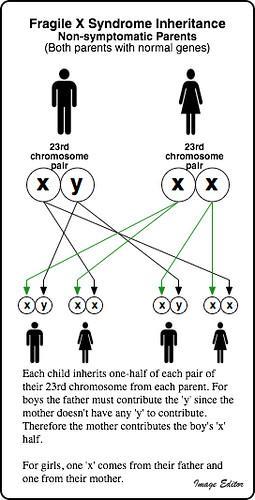As humans, we are all aware of the inevitable reality of our mortality. However, the fate of the material possessions we leave behind, particularly real estate, after we depart this world is a complex and often emotional matter. Let’s delve into the intricate world of post-mortem property rights and explore the various legal and ethical considerations that come into play when a person passes away.
Real Estate Inheritance Laws
In the event of a loved one’s passing, their assets, including real estate, are usually passed down to their heirs in accordance with inheritance laws. It is crucial to understand how these laws operate to facilitate a smooth transition of ownership.
Key Points to Consider:
-
State Laws: Inheritance laws differ from state to state, making it essential to seek the advice of a legal professional knowledgeable in real estate laws in your area.
-
Probate Process: The real estate may need to undergo the probate process before it can be transferred to the heirs.
-
Multiple Heirs: If there are multiple heirs involved, dividing the real estate among them may present complexities.
Seeking legal counsel can assist in navigating this intricate process and ensuring the deceased’s wishes are appropriately carried out.
Navigating Probate and Estate Planning
Ownership of a deceased individual’s real estate properties can become a complex issue that needs to be navigated through probate and estate planning. It is essential to understand the different factors that come into play during this process.
One critical consideration is the presence of a valid will. If the deceased had a will, it will determine how their real estate properties should be distributed. However, in cases where there was no will or if the will is contested, the property may have to go through probate court for a decision to be made.
The type of ownership the deceased had over the property, whether it was owned solely, jointly, or through a trust, can impact how the property will be transferred to their beneficiaries. Reviewing the ownership documents and seeking legal advice is crucial to ensure a seamless transition of ownership.
Implications of Joint Tenancy and Tenancy in Common
The type of property ownership can significantly impact what happens to the property upon the death of one of the owners. In Joint Tenancy, the share of a deceased tenant automatically passes on to the surviving tenants. However, in Tenancy in Common, each tenant owns a specific percentage of the property, and the share of a deceased tenant can be passed on to their heirs through a will or trust.
Understanding the implications of these property ownership types is crucial in estate planning to ensure that the property is passed on according to the owner’s wishes and to prevent potential disputes among heirs.
Maximizing Tax Benefits Through Proper Estate Planning
The transfer of real estate ownership after a person passes away can be a complicated matter, especially when it comes to taxes. Proper planning is essential to ensure a tax-efficient transfer of property and to avoid unnecessary taxes or complications for heirs.
Establishing a living trust can help maximize tax benefits by bypassing the probate process and reducing estate taxes. Additionally, having a clear and up-to-date will in place is crucial to outline the distribution of real estate assets and prevent the property from being subject to intestacy laws.
Final Thoughts
In conclusion, the transfer of ownership of real estate after a person’s demise is a complex and often emotional process. From wills and trusts to probate and inheritance laws, there are many factors to consider when navigating the legalities of property ownership after someone passes away. Seeking guidance from legal professionals is crucial to ensure a seamless transfer of ownership and to honor the wishes of the deceased. Understanding the intricacies of real estate ownership after death can provide closure and peace of mind for both the departing individual and their grieving loved ones.

Who Inherits the Real Estate When Someone Passes Away?
When an individual passes away, their real estate properties are typically transferred to their heirs through a legal process known as inheritance. The laws governing inheritance vary depending on the jurisdiction and the specific circumstances of the deceased individual. In this article, we will explore the different scenarios in which real estate properties are inherited and who ultimately becomes the rightful owner.
Intestate Succession
When someone passes away without a will, their assets, including real estate properties, are distributed according to the laws of intestate succession. These laws vary by state but generally prioritize spouses, children, parents, and siblings in that order. If the deceased individual has a surviving spouse and children, the property is typically divided between them. If there are no immediate family members, the property may be passed on to more distant relatives.
Will or Trust
If the deceased individual had a will or a trust that outlined how their assets should be distributed, the real estate properties will be inherited according to their wishes. The executor of the will or the trustee of the trust is responsible for ensuring that the property is transferred to the designated beneficiaries in accordance with the document. It is important to note that the will or trust must be legally valid for it to be upheld in court.
Joint Tenancy
Real estate properties held in joint tenancy or tenancy by the entirety with rights of survivorship will automatically pass to the surviving co-owner upon the death of one owner. This means that if two individuals own a property jointly and one of them passes away, the other owner becomes the sole owner of the property. Joint tenancy typically applies to married couples, but it can also be used by other types of co-owners.
Community Property
In community property states, real estate properties acquired during a marriage are considered community property and are equally owned by both spouses. When one spouse passes away, their share of the community property will be inherited by the surviving spouse. Community property laws vary by state, so it is important to consult with a legal professional to understand the implications in your specific situation.
Practical Tips for Real Estate Inheritance
- Make sure to have a legally valid will or trust in place to ensure that your assets are distributed according to your wishes.
- Consider discussing your estate planning with your heirs to avoid any potential conflicts or misunderstandings.
- Keep your property titles and deeds up to date and ensure that they reflect your current wishes for inheritance.
- Consult with a legal professional or estate planner to understand the laws governing real estate inheritance in your state.
Case Study: The Jones Family
| Name | Relationship | Inheritance |
|---|---|---|
| John Jones | Deceased | 3-bedroom house in the suburbs |
| Mary Jones | Surviving spouse | 50% ownership of the house |
| Emily Jones | Daughter | 50% ownership of the house |
Benefits of Estate Planning
- Ensures that your assets are distributed according to your wishes
- Minimizes potential conflicts among family members
- Provides peace of mind knowing that your loved ones will be taken care of
In conclusion, the inheritance of real estate properties after someone passes away can be a complex process that is governed by state laws and the circumstances of the deceased individual. By understanding the different scenarios in which real estate properties are inherited and taking the necessary steps to plan ahead, you can ensure that your assets are distributed according to your wishes and avoid potential conflicts among your heirs.


